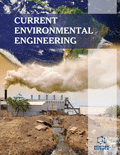Abstract
Background: To make the current chemicals production sustainable, new processes should be developed to produce chemicals from unused resources, such as organic wastes and biomass which could be also considered as supplementary resources. The new processes would also require that the raw materials and their by-products cause less stress to human being and to the environment, and that the production efficiency would be equal to or greater than the current petroleum-based system. In this manuscript, we report recent application of organic waste and biomass feedstock to produce valuable chemicals and gaseous fuels from by catalytic high-pressure and high-temperature reaction in water, which is the safest chemical for humans and the environment.
Methods: This review covers the literature on chemicals production from organic wastes and biomass in high-temperature liquid water and supercritical water solvent.
Results: The proposed processes shown in this review do not need dewatering pretreatment processes, which are energy-intesive.
Conclusion: This review illustrates a recent application of catalytic transformation of organic wastes and biomass to produce commercially important chemicals and fuel gases in water solvent. The case studies presented here include (1) hydrolysis of polyethylene terephthalate to terephthalic acid and ethylene glycol in high-temperature liquid water, (2) hydrogenolysis of bio-glycerol to 1,2-propanediol over copper-aluminum in high-temperature liquid water, and (3) fuel gas production from organic wastes with supported ruthenium catalysts under supercritical water.
Keywords: Supported metal catalysts, aqueous medium, supercritical water, high-temperature liquid water, water solvent, solid catalyst.
Graphical Abstract
 22
22 3
3

